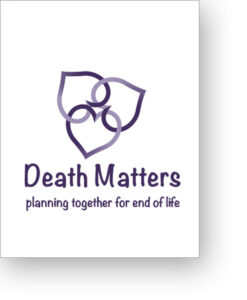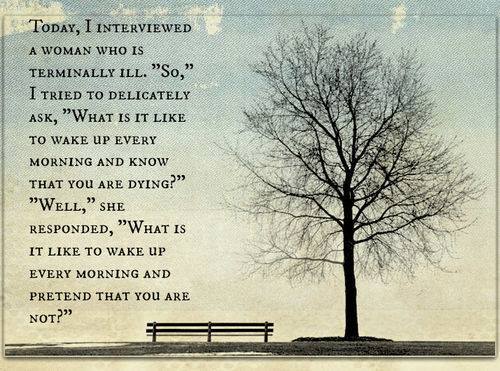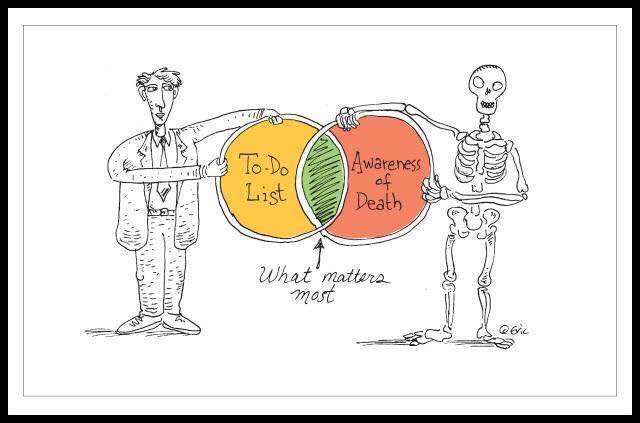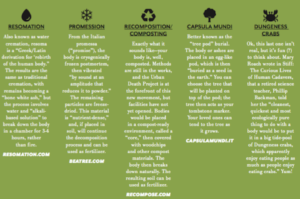 Been putting off your end-of-life paperwork? Finding it difficult to know where to begin? The EXIT PLANNING Workbook provides a path to completion. Download it now. And get on with your life!
Been putting off your end-of-life paperwork? Finding it difficult to know where to begin? The EXIT PLANNING Workbook provides a path to completion. Download it now. And get on with your life!
PDF with fillable fields, 56 pages. $24.00.
Planning Together for End of Life
 Been putting off your end-of-life paperwork? Finding it difficult to know where to begin? The EXIT PLANNING Workbook provides a path to completion. Download it now. And get on with your life!
Been putting off your end-of-life paperwork? Finding it difficult to know where to begin? The EXIT PLANNING Workbook provides a path to completion. Download it now. And get on with your life!
PDF with fillable fields, 56 pages. $24.00.
The devil is in the details.
Preparing advance directives may seem like an easy task at first. But why does it continually move to the bottom of the pile on the desk? What could be so very challenging that we are unable to put our wishes in writing with ease? There are just a few seemingly simple decisions to make, after all.
However, the decisions in question require that we confront our mortality…. often a more than daunting task. So how can we do it? How can we contemplate the unknown details we might face as we approach the end of our life?

In addition to contemplation, conversation with friends and loved ones might be a useful activity to instigate decision-making. Simply imagining – out loud – how it might feel to be at the end of your life could be a great beginning. What does it look like? Who is around you? Smells? Sounds? Fear? Anxiety? Discord? Anticipation?
We cannot possibly know how our end will come – or go. However, we can begin to ‘plan’, based on our own held values and preferences, the kind of container and care that might suit us best. And document and share that information with our loved ones. These are the kinds of details that create advance directives.
Dead is a four letter word. Perhaps that is why it is not uttered in polite company. There is very little general discussion about what happens when dying, after death. It seems to be some kind of secret. But we all do it. Like sex. Let’s talk about it. Might make it easier.

Imagine if dying & death were common subjects of discussion… if we could approach this very normal life experience (which we share with each and every sentient being on the planet) as ordinary…. as healthy… as universal… perhaps even celebratory. Discussion over dinner, at the spa, while walking in the park, or driving the kids to school…
We might even have ordinary, everyday discussions about our preferences at the time of dying …. who would be there, details of the environment – sounds, smells, sights. Not that we really have a choice. But imagine what it might be like if close friends and family actually knew what we wanted, actually understood our values and wishes… without fear. Imagine…. the possible benefits of discussion of our hopes and fears. Death matters. Discussions of death matter.
The word ‘disposal’ is a roundabout way of getting to the word ‘corpse’. It happens to be something that is necessary to do with a corpse… one way or another. What way will you choose? Or will you let someone else make that decision (another great ‘d’ word) for you? If so, who? How will they know what you want?
What are the choices for disposal of a corpse here in Nova Scotia?

None of the above….. yet.
However, you do have the options of cremation, conventional burial, or green burial. The former two have a significant negative impact on the environment. The latter, however, replenishes our soils, and leaves a very minimal carbon footprint.
So, if you care about the method of disposal of your corpse, you might want to consider your options before you die, and document and share them with the folks who will be taking care of your body.
If you care about the environment, choose green burial…. for more information go to www.greenburialns.ca.